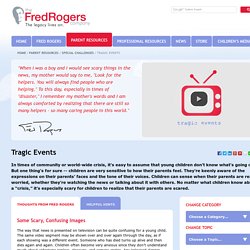

You CAN Stop Yelling. Here's your 10 step plan. "Dr Laura....I'm trying stop yelling, but I can't.

And I can't imagine getting my kids to listen if I don't yell at them. ...Can you move in with me for a week?!” - Cheralynn Like Cheralynn, most parents think they "should" stop yelling, but they don't believe there's another way to get their child's attention. After all, it's our job to teach them, and how else can we get them to listen?
It’s not like yelling hurts them; they barely listen, they roll their eyes. Wrong. If your child doesn't seem afraid of your anger, it’s an indication that he's seen too much of it and has developed defenses against it -- and against you. Whether or not they show it, our anger pushes kids of all ages away from us. But believe it or not, there are homes where parents don't raise their voices in anger at their children. Do you think, like Cheralynn, that you'd need your own private emotion coach in order to stop yelling? 1. 2. 3. 11 Questions That Will Make Your Child Happier Are you naturally carefree and happy?

If so, it's likely a mix of your genetics (identical twins reared apart are usually the same level of happy) and your personal choices about how to live your life. The field of positive psychology centers on the idea that people can make themselves happy just by changing how they think and act. Happiness is conceptualized as more of a habit than a God-given blessing. And while some of your happiness is biologically determined, there are many things you can do to be happier. These 11 questions focus your children on how to make themselves happy. 1. This is a good question to ask at bedtime, to help your child feel content and happy before sleep. 2. This is a good question for the dinner table. 3. When a child comes to you with a problem, ask this question in a warm and curious tone. 4. At the risk of sounding shrink-y, an essential part of happiness is being able to notice and express your own emotions. 5.
25 Ways To Ask Your Kids How Was School Today. This year Simon is in 4th grade and Grace is in 1st grade and I find myself asking them every day after school, “So how was school today?”.

And everyday I get an answer like “fine” or “good” which doesn’t tell me a whole lot. Or at get at least a full sentence. So the other night I sat down and made a list of more engaging questions to ask about school. 25 Ways to Ask Your Teens "How Was School Today?" WITHOUT asking them "How Was School Today?" - Simple Simon and Company. 10 Tips for talking to your kids about terrorism from a pediatric mental heal... Parent Resources - Tragic Events. Some Scary, Confusing Images The way that news is presented on television can be quite confusing for a young child.

The same video segment may be shown over and over again through the day, as if each showing was a different event. Someone who has died turns up alive and then dies again and again. Children often become very anxious since they don’t understand much about videotape replays, closeups, and camera angles. Any televised danger seems close to home to them because the tragic scenes are taking place on the TV set in their own livingroom. The younger the children are, the more likely they are to be interested in scenes of close-up faces, particularly if the people are expressing some strong feelings. “Who will take care of me?” In times of crisis, children want to know, "Who will take care of me? " Helping Children Feel More Secure Play is one of the important ways young children have of dealing with their concerns. Turn Off the TV Talking and Listening.
Fake News: A Library Resource Round-Up. The Best Tips for Spotting Fake News in the Age of Trump. In this op-ed, William Colglazier — an AP US History teacher from California who is teaching his students how to spot fake news — explains how we can do the same.

Wait, what?! Did you hear? The days of saying the Pledge of Allegiance are gone! Check it out… Now the question is, would you click Post to Facebook? To be clear, the story is fake, but that didn’t stop over two million people from sharing, commenting, liking, or reacting with a 😀 or 😡 on Facebook in the last month. Now, maybe a fake news story about politics doesn’t wow you. A recent Stanford University study found that over 80% of middle-schoolers couldn’t determine the difference between an article and an advertisement online, according to NPR. The next step to saving your friend’s reputation would be to inquire about the rumor monger’s reputation. So if we use that same rumor-killing process with the post about Obama banning the Pledge of Allegiance, we would find out some interesting facts.